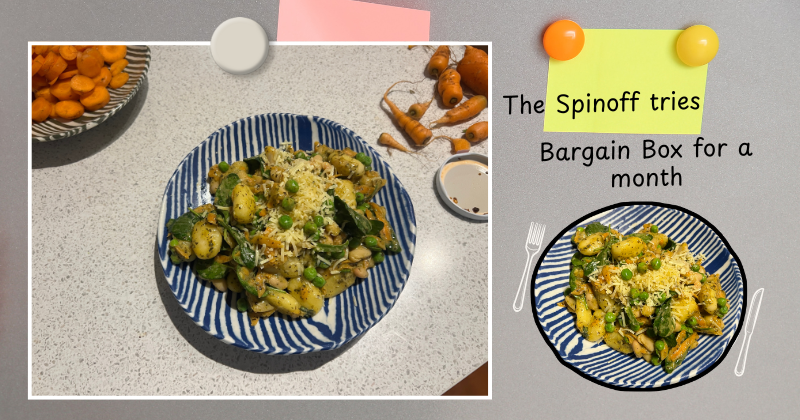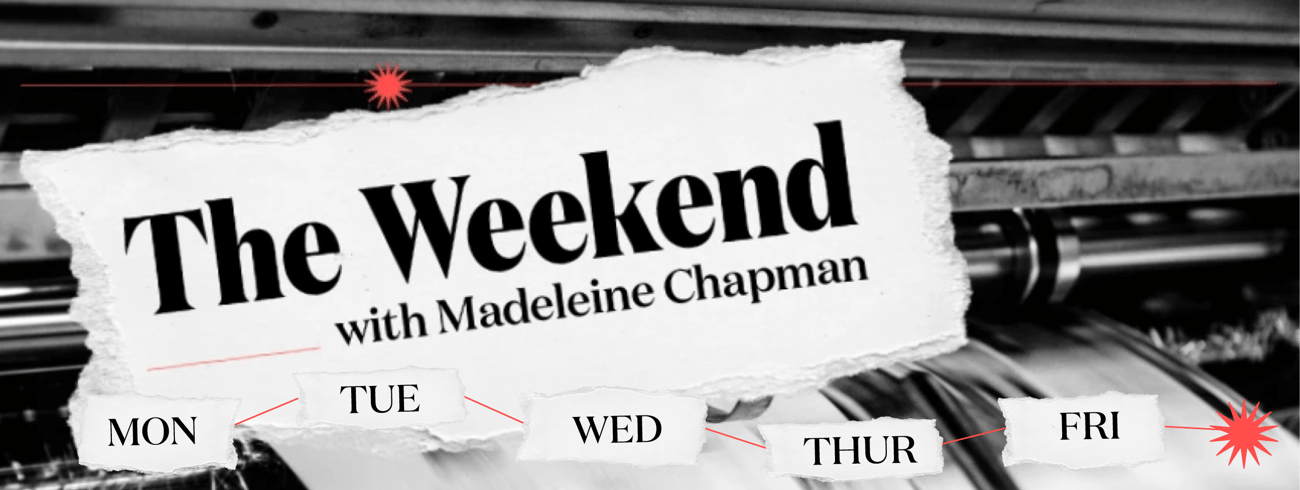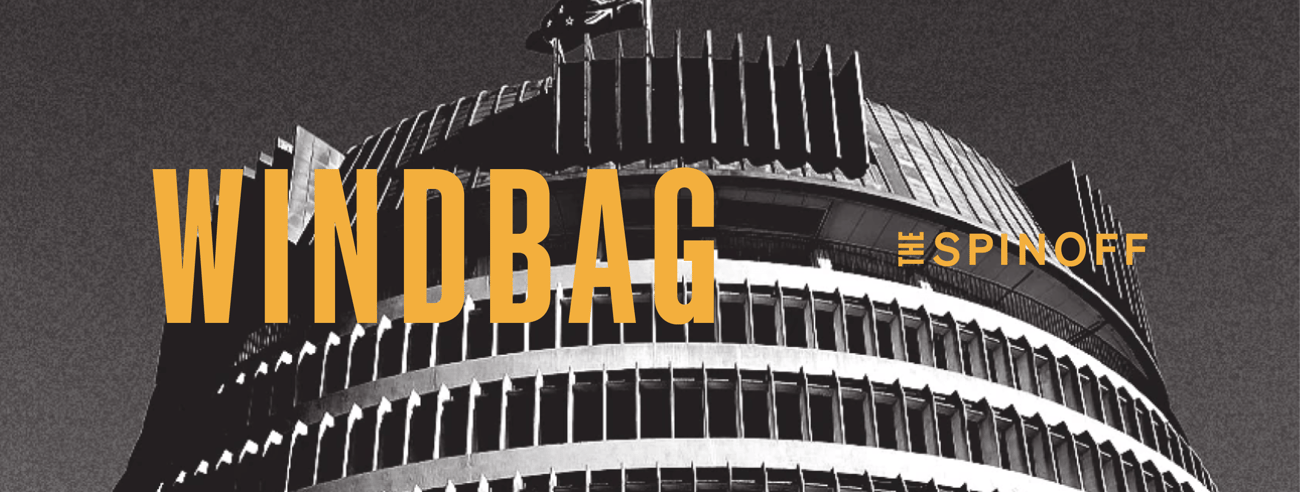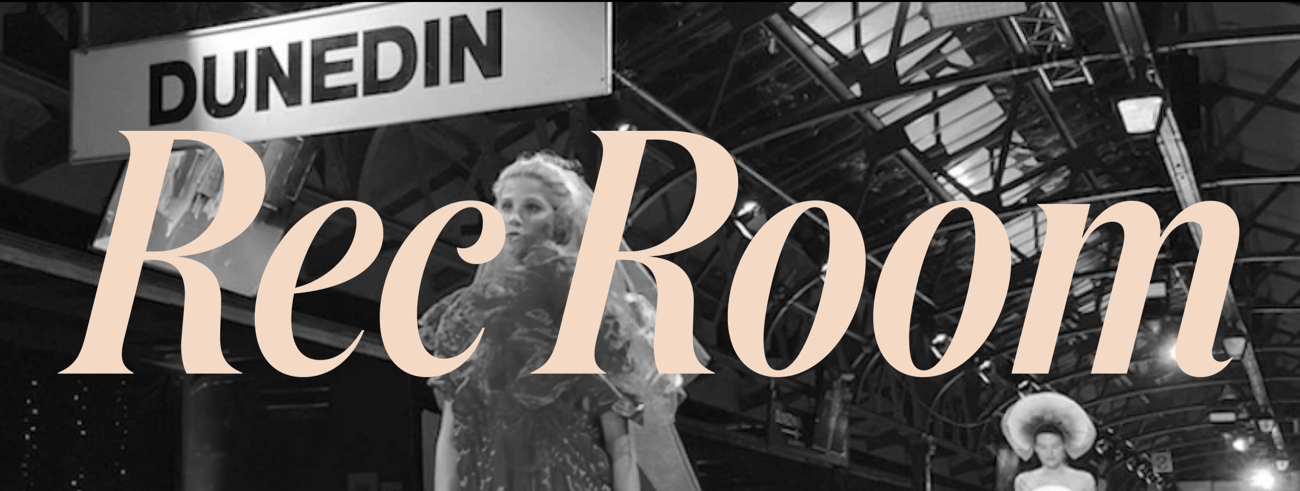|
|
|
|
|
|
|
 |
September 01, 2025
By Catherine McGregor
|
 |
|
|
|
|
|
Mōrena, and welcome to The Bulletin
In today’s edition: Postcode lottery for cataract surgery persists; Integrity Institute’s media funding raises questions over political agenda. But first, the move to scrap in-store surcharges is good news for consumers but has many retailers and card issuers crying foul.
|
|
|
|
 |
The new law will apply to Eftpos, Visa and Mastercard transactions – including contactless – but not to payments made online, or using commercial or foreign-issued cards. (Image: Getty)
|
End of the surcharge sticker era beckons
The dog-eared masking tape stuck to payment terminals across New Zealand may soon be consigned to history. In a move the government says will save consumers up to $150 million a year, most surcharges on in-store card and device payments will be banned by May 2026. The new law will apply to Eftpos, Visa and Mastercard transactions – including contactless – but not to payments made online, or using commercial or foreign-issued cards. The move follows widespread criticism of retailers charging excessive surcharges of up to 2.5%, with some outlier merchants charging 5% or
more.
The ban will bring New Zealand closer to other jurisdictions like the UK and EU, where surcharges are already prohibited. Australia currently allows them but caps fees at cost – a model its central bank is now moving to tighten further.
How surcharges work
So why were surcharges ever allowed in the first place? As Stuff’s Lloyd Burr explained in a two-part investigation last year, it’s mostly because credit card providers like Visa and Mastercard charge banks to use their networks, and those banks in turn pass the cost to retailers through merchant service fees. Rather than build these into prices, some retailers tack on a visible surcharge – especially for contactless payments, which are processed through the same infrastructure as credit cards.
The actual cost to retailers varies widely depending on size and turnover, with credit and contactless payment processing averaging 2.3% but sometimes climbing as high as 3.5% for small businesses. In contrast, Eftpos and debit transactions are cheaper to process, but even these have been hit with surcharges – illegally, in some cases. “The whole system of payments is incredibly complex, confusing, commercially sensitive, and many are clipping the ticket along the way,” wrote Burr. “The complexity is good for those involved because the fewer people who understand it, the fewer people can stand up against it.”
Retailers squeezed, but fee cuts offer relief
The new surcharge ban builds on the Commerce Commission’s recent decision to cap interchange fees – the largest component of merchant service charges – which the commission estimates will save businesses $90 million annually. That reform effectively cleared the path for a surcharge ban by lessening the financial blow to merchants.
Still, retailers are warning of knock-on effects. Hospitality NZ’s Steve Armitage said many in the sector may be forced to raise prices to cover the loss of surcharge revenue, while Dairy and Business Owners Group chair Ankit Bansal called for reforms to ensure small businesses get the same transaction fee deals as corporate giants. Speaking to BusinessDesk’s Pattrick Smellie (paywalled), Mastercard’s
Richard Wormald said the interchange fee cap could backfire, with banks forced to claw back revenue by delaying payments to retailers or cutting their (already meagre) reward scheme perks.
Winners and losers in the post-surcharge world
As traditional players push back, some fintechs see the reforms as a mixed blessing. Jamie Jermain of new local player Emerge said the squeeze on interchange fees could choke innovation by making card payments “so cheap that there’s no incentive for someone to build a domestic solution" offering a better customer experience. Mastercard’s Wormald went one further, warning the interchange fee cap “will clearly kill all the open banking and other payment opportunities in New Zealand”.
Yet BNZ seems to be looking on the bright side. It used yesterday’s news to promote its new open banking platform Payap, which facilitates direct account-to-account payments using QR codes and has a much lower transaction fee of just 0.39% in some cases. With Payap set to launch to consumers next month, and open banking initiatives gaining momentum, the future of payments may lie beyond cards altogether. But for now, the government’s move marks a win for transparency at the till – and for anyone who’s ever grumbled at paying extra just to tap their card.
|
 |
|
|
|
|
|

|
Gnocchi with basil brightness
About once a year, I make homemade gnocchi for dinner. It’s a huge lift and fails 50% of the time (for me at least). When it works though, it really works and this recipe totally did. Critically, the gnocchi was made for me and the sauce – a blend of sour cream, basil, stock, lemon and dried herbs – was perfectly balanced and not overly creamy or pesto forward. Layered with baby spinach, peas and finely shredded carrots, the final result was comforting yet light. The least stressful gnocchi meal I’ve made by far. / Liv Sisson
|
| Try Bargain Box here!
|
|
|
|
|
|
 |
Postcode lottery for cataract surgery persists
Two years after a national threshold for cataract surgery was promised, nearly half the country still hasn’t adopted it, reports 1News' Jessica Roden. In 2023, then health minister Ayesha Verrall announced all regions would move to a standard Clinical Priority Assessment Priority (CPAC) score of 46 to qualify for surgery, ending the postcode lottery. But eight of 20 regions, including Canterbury, Southern and Waikato, still have higher thresholds — up to 61 in some cases — making surgery harder to access. A Canterbury patient who paid $6000 for private
treatment called the delay “very unfair,” adding that politicians "have had long enough to sort it out, it's not rocket science". Health NZ says further progress towards a standard threshold for access should be made over the coming year. Roden's report is part of an ongoing 1News series on how the postcode lottery persists, despite the end of the DHB system that originally enabled it.
|
|
|
 |
Integrity Institute’s media funding raises questions over political agenda
The Integrity Institute, set up to promote transparency and accountability in politics, is under scrutiny for allegedly using its $3 million endowment to advance politically targeted journalism, reports Richard Harman in Politik (paywalled). The organisation is funding a year-long investigative series in Newsroom, currently focused on Federated Farmers’ influence on freshwater policy. But the prescriptive nature of the institute’s trust deed – which encourages media partnerships and even outlines potential “sting” operations against lobbyists – is
"raising questions about its own integrity", writes Harman.
Federated Farmers president Wayne Langford has accused Newsroom and reporter David Williams of “pay-for-play journalism". Newsroom co-editor Tim Murphy rejected that, saying the Institute had “no editorial say" in its reporting and has a signed agreement prohibiting interference. While Federated Farmers is one of four named targets in the trust deed (the others are Transparency International, the Taxpayers’ Union and the Maxim Institute), Williams "was already looking at this issue before our initial discussions with the Integrity Institute", Murphy said. Integrity Institute director Bryce Edwards also defended the partnership, saying it operates at “arm’s length” and is focused on redressing a lack of scrutiny of powerful lobby
groups.
|
 |
|
|
|
|
|
|
|
No two supporters of The Spinoff are the same. But they have one thing in common. |

|
Emma, member since 2024
They believe in supporting independent and locally produced journalism by financially supporting The Spinoff.
Only 3.2% of The Spinoff’s readership supports us like Emma does. Please join her in becoming a paying member.
|
| Donate today |
|
|
|
|
|
|
|
 |
Click and Collect |
 |
|
|
|
|
 |
Thanks for reading.
If you've enjoyed our roundup of today's news, forward The Bulletin to a friend.
As always, thanks to our members. If you are not already a Spinoff member, please sign up today to support independent journalism.
|
|
|
|
|
|

|
A wrap of our stories each weekday
–
|
|
|
|

|
The best of The Spinoff each Saturday
–
|
|
|
|

|
Essential reading for all things Wellington
–
|
|
|

|
Culture, entertainment & recommendations
–
|
|
|
|
|
|